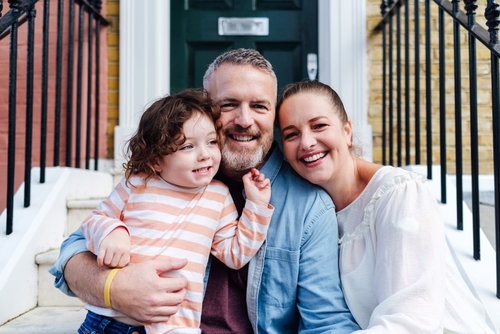Common Law Myth – Essential information for cohabiting couples.
Whilst more and more families in the UK are choosing to cohabit rather than marry or enter into a civil partnership, it is therefore imperative that the law and rights for cohabitants is properly understood.

Whilst more and more families in the UK and worldwide are choosing not to marry or enter into a civil partnership, either through personal choice or through prioritising finances in purchasing a home together or starting a family, the law is yet to catch up with this evolution. It is therefore imperative that the law and rights for cohabitants is properly understood.
Cohabitants Vs Married Couples/Civil Partners
The rights for cohabitants following separation is vastly different from the rights of two people who are married or have a civil partnership, with the following setting out some key examples:-
- Cohabitants do not have the presumption that all assets shall have a 50/50 starting point;
- Cohabitants claims are limited to those for children and under the Trusts of Land and Appointment of Trustees Act (if a beneficial interest can be shown);
- Cohabitants cannot make a claim against the other’s pension, nor claim maintenance for themselves (including where an unmarried partner has stayed at home or reduced their working hours to care for children); and
- If an unmarried partner dies without leaving a Will, their cohabitant would not automatically inherit from their estate (unless they have a property together held a Joint Tenants).
What can Cohabitants do?
Whilst the Cohabitation Law Reform is starting the pathway to afford more rights to cohabitants, until such time as to a change in the law, cohabitants can mitigate against the risk of uncertainty by entering into a Cohabitation Agreement and/or Declaration of Trust where appropriate.
Cohabitation Agreement
A Cohabitation Agreement, whilst not legally binding, would set out the intentions of two cohabitants as to how their finances, and any other matters such as arrangements for children, shall be dealt with in the event of a separation. There is therefore evidence which could be produced of the agreement in the event of a later dispute. A Cohabitation Agreement can be tailored towards your needs so that both parties can work from the same page and have a mutual understanding should a separation occur in the future.
Declaration of Trust
A Declaration of Trust is a legally binding agreement between two joint owners of a property outlining each person’s share in a property. This provides confirmation as to what will happen to each party’s money when the property is sold or transferred in the future.
Make a Will
You should also ensure that you have a Will in place to protect each other, and any children, in the event of death through old age, illness or accident for peace of mind. There is no automatic right of inheritance for a cohabiting partner who will not inherit any of your estate automatically and will only benefit from any jointly owned assets. Writing a will is the only way to make financial provision for a partner, or safeguard assets for children, if the worst should happen and can leave assets outright or make provision for them to occupy a property but with a property share ultimately being inherited by children or other family members.
What Next?
If you are about to move in with your partner or have already moved in and wish to receive further advice about your cohabitation, then we have a specialist team of family advisors and will writers who can provide you with advice on your circumstances. Please contact your nearest office or email family@clarkwillis.co.uk
